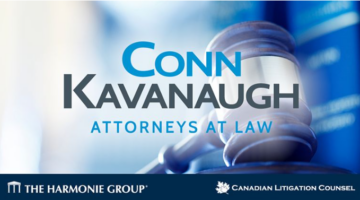On January 13, 2022, the United States Supreme Court dealt a swift – but not final – blow to the OSHA standard requiring vaccination or weekly testing of workers at private employers with 100 or more employees. The implementation and enforcement of the emergency temporary standard (“ETS”), which employers have been working to comply with for months, is now stayed. This development is the latest in the storied history of the ETS in the federal courts.
What This Means
SCOTUS has reinstated the temporary injunction preventing the ETS from going into effect while the parties litigate the case in the lower federal courts. The case is currently pending in the United States Court of Appeals for the Sixth Circuit. The Sixth Circuit was selected by lottery to handle the consolidated challenges to the ETS in the federal courts. The Sixth Circuit had previously lifted a temporary injunction issued by the Fifth Circuit. That ruling put the ETS back into effect. Now, SCOTUS has overturned that ruling, which again sets the ETS on the sidelines while its fate is decided in the Sixth Circuit.
Is It Over?
No. The propriety of the ETS is still being fought in the Sixth Circuit. However, now that the nation’s highest court has weighed in, the ETS faces an uphill battle. Although the Sixth Circuit has indicated that the challengers to the ETS are “unlikely to succeed” in permanently striking down the ETS, SCOTUS has now hinted that they are “likely to prevail” in doing so. Thus, even if the ETS is upheld in the Sixth Circuit, it will have a difficult time on appeal again to SCOTUS.
Note also that SCOTUS’ decision does not affect the vaccination mandate for employees of healthcare facilities that receive Medicare and Medicaid funding.
How Employers Should Respond
Although enforcement of the ETS is currently stayed, and its outlook in the courts appears bleak, a vaccine-or-testing mandate could return in several ways. There is a chance that the Sixth Circuit could reinstate the ETS. In that case, OSHA could take swift enforcement action quickly, and employers will have little time to prepare. OSHA could also seek to implement a permanent rule, rather than an emergency temporary one, with similar requirements in the coming months. Comments on the ETS may still be submitted through January 19, 2022.
U.S. Secretary of Labor Marty Walsh called the decision a “major setback to the health and safety of workers,” and urged employers to require vaccination or weekly testing. Depending on the culture and views at your organization, you may wish to still rollout your vaccine-or-testing policy, especially if compliance efforts have already been undertaken. Employers who decide to do so, or those wish to continue preparation in case the ETS makes a comeback, should focus on the following:
- Assembling a roster of who is vaccinated and who is not, and requesting proof of vaccination.
- Surveying employee opinions.
- Deciding whether to allow weekly testing as an alternative to vaccination, and if so, considering the logistics of testing, such as who will pay for it, how results will be collected and stored, and how to ensure negative results are returned on time.
- Planning for evaluating requests for accommodations due to a medication condition, disability, or religious belief.
- Determining how to handle requests for time off to get vaccinated.
- Working with visitors and contractors to unify and organize your policy.
- Subscribing to legal blogs and news outlets to get the most up-to-date information.
We will continue to monitor these developments. Employers with questions about the ETS or any other employment laws should contact one of Conn Kavanaugh’s experienced employment lawyers.
The author, Catherine M. DiVita, is an Employment Law Attorney at Conn Kavanaugh Rosenthal Peisch & Ford, LLP. She can be reached at cdivita@connkavanaugh.com
Share with your network:

